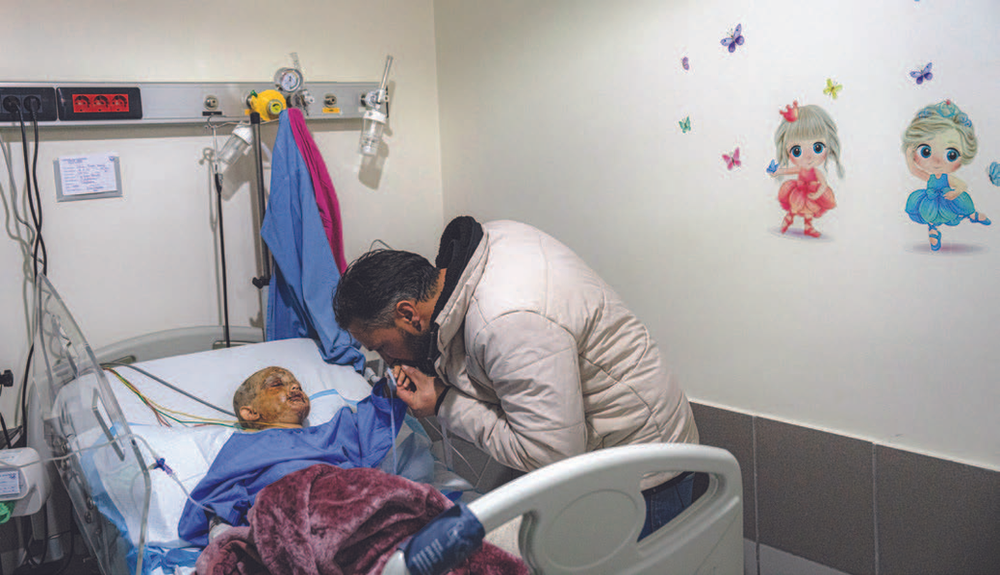
By Liam Stack
On Saturday, Iran’s supreme leader warned of “a devastating response” to Israeli attacks on his nation, coinciding with the Pentagon’s announcement of additional resources being dispatched to the area in the months ahead.
Initially, Iran seemed to minimize the severity of the Israeli strikes on its territory late last month, raising hopes that it might opt for de-escalation instead of a new cycle of vengeance. However, in the past few days, Iranian officials have shifted their rhetoric.
Ayatollah Ali Khamenei, Iran’s supreme leader, possesses the command authority to direct strikes on Israel. He stated online on Saturday that both Israel and the United States would “certainly face a devastating response” for their actions against Iran.
His comments echoed those of two Iranian officials who recently asserted that Iran would retaliate, with one noting to state media that the response would be “inevitable” and another declaring it would be “a fierce, bone-crushing” response.
After years of avoiding direct military confrontations, Iran and Israel have entered an escalating months-long cycle of retaliation, pulling in their allies and proxies and pushing the region towards the brink of full-scale war.
In late September, the Pentagon extended the deployment of an aircraft carrier strike group in the Gulf of Oman to deter Iranian assaults and intercept any ballistic missiles aimed at Israel.
To sustain such capabilities in the region upon the return of the carrier, USS Abraham Lincoln, the Pentagon announced on Friday evening that a new allocation of naval vessels and land-based fighter jets would proceed to the area.
Maj. Gen. Pat Ryder, Pentagon spokesperson, stated that Defense Secretary Lloyd J. Austin III had mandated the deployment of fighter jets, ballistic missile defense destroyers, and B-52 long-range bombers to support the defense of Israel and other U.S. interests in the vicinity.
“Secretary Austin continues to emphasize that if Iran, its allies, or its proxies exploit this situation to target American personnel or interests, the U.S. will take all necessary measures to protect our people,” Ryder remarked in a statement.
The U.S. has already increased its military footprint in the region amidst rising tensions. It dispatched an advanced missile defense system known as the Terminal High Altitude Area Defense system, or THAAD, along with the required 100 U.S. troops to operate it, to Israel.
The arrival of these troops less than two weeks ago marked the first deployment of U.S. forces to Israel for such a mission since the onset of the war last October.
This week, the Biden administration sent key emissaries, including the CIA director, to the Middle East with the aim of revitalizing discussions aimed at ending Israel’s conflict with Hamas in the Gaza Strip and its escalating encounters with Hezbollah in Lebanon. Both groups are Iranian proxies. However, these endeavors have faltered, and the fighting has persisted without pause.
On Saturday, Lebanon’s health ministry reported that one person was killed and 15 others injured following an Israeli airstrike in the Dahiya, a crowded area to the south of Beirut where Hezbollah exerts influence. The day before, substantial Israeli bombardments claimed at least 52 lives in the central region of the country, according to Lebanese officials, while seven people in northern Israel died due to rocket attacks from Hezbollah.
The Israeli military reported on Saturday that its forces had targeted over 120 locations across Lebanon and Gaza since the previous day, including an airstrike in the Lebanese city of Tyre that allegedly killed two Hezbollah commanders. It also mentioned that troops were executing ground operations in northern, central, and southern Gaza.
In central Israel early Saturday, a rocket struck Tira, an Arab-majority town, injuring several individuals. The Israeli military detected three rocket launches overnight from Lebanon, including targeting the area surrounding Tira. Furthermore, another 30 launches from Lebanon were reported on Saturday afternoon, according to the military.
Magen David Adom, Israel’s emergency medical service, indicated that 11 people were injured in Tira, with most injuries ranging from minor to moderate. A photograph and video shared by emergency services depicted the upper floor of a building with blown-out walls.
Hezbollah commenced its strikes against Israel in solidarity with Hamas, its ally in Gaza, after the attacks orchestrated by Hamas on October 7 of last year spurred Israel to initiate a war against the group in Gaza.
Following nearly a year of cross-border skirmishes mainly confined to the border area, Hezbollah has recently intensified its efforts by striking targets deeper within Israel. The militant organization fired missiles at the heavily populated Tel Aviv region in September and October, which were intercepted without any reported injuries or damages.
